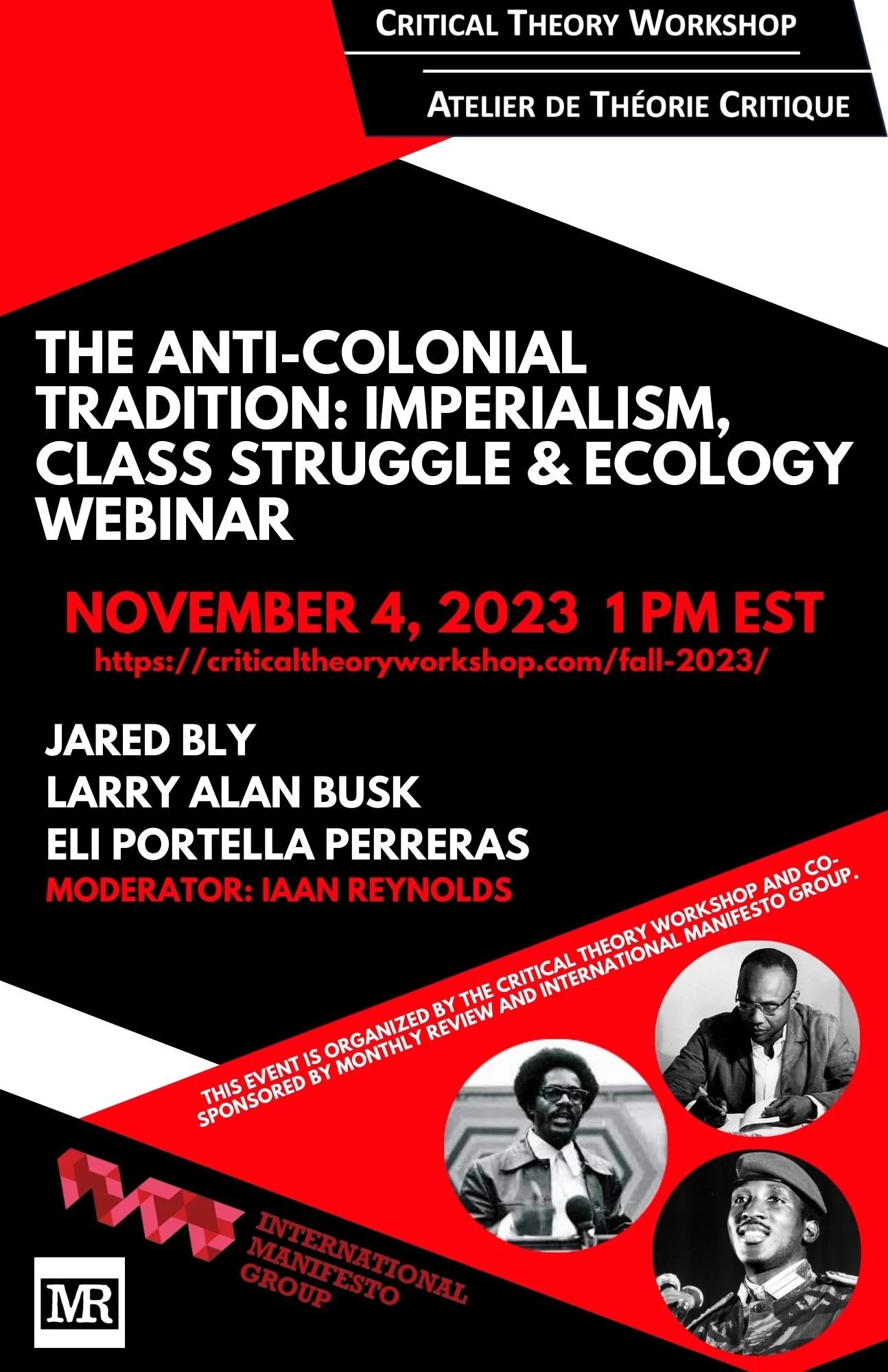IMPERIALISM AT THE BRINK: dECOLONIZATION, dECARBONIZATION, AND THE CRITIQUE OF CAPITALISM
Imperialism at the Brink responds to two pressing social and political problems in the midst of the climate crisis. On the one hand, intensifying ecological impacts and increasingly catastrophic projections demand that we initiate a process of rapid decarbonization. On the other, global inequalities and uneven international development render any homogenous or ‘one fits all’ climate policy potentially hazardous. As powerful states grapple for control of the climate mitigation process and pursuit national security in response to migration, developing states are left to contend with increasing ecological vulnerability wrought by colonialism and imperialism. In popular discourse, these competing objectives have justified the lack of climate accord compliance among the some of the world’s largest emitters. In theoretical discussions, perceived chasms between degrowth and radical social transformation and between workers’ immediate interests and the longterm requirements of sustainable production demonstrate that tensions arise from not only from massive inequalities but also from the basic conceptions of what capitalism is and what, precisely, drives it toward imperial expansion and environmental devastation.
Historically, the left critique of capitalism has been primarily identified with the critique of exploitation, the extraction of surplus-value from workers’ generating greater value than they are paid in the supposedly ‘free’ wage relation. And, while exploitation and the emiseration it produces is of crucial ethical and strategical importance, the end of relations of exploitation is not a panacea for all of capitalism’s ills—in particular those related to the climate crisis. A systematic critique of capitalism which is adequate to the existential crisis faced by people living in a rapidly warming world requires that we capture the fundamental logic of capitalist production, even as it presents itself in heterogenous forms, to better point a clear way forward.
In Imperialism at the Brink, the author argues in favor of refocusing the critique of capitalism toward the telos of production critique. This critique emphasizes the goal or aim of production, rather than strictly labor relations, which vary by material context. In capitalist society, production is subordinate to a single imperative: infinite accumulation through the endless production and the exchange of commodities (i.e., production for exchange-value) to the detriment of human needs (use-value). Although the idea that profit-seeking and peoples’ needs may be counter-indicated is not new (indeed, it has been a quiet fulcrum for critiques of capitalism for some time), centering this premise analytically draws out new insights, helps us reassess old problems, and resolves theoretical tensions which have muddled previous attempts to formulate a coherent political alternative to capitalism.
In practical terms: If we want to achieve decarbonization without exacerbating underdevelopment and inequality, then we need to consider a differential approach to climate policy akin to the ‘contraction and convergence model’. Market-driven economies, the book argues, cannot offer us either the organizational capacity nor flexibility necessary to implement such a program. The critique of the telos of production in capitalist society (i.e., production for exchange-value), however, can address capitalism’s myriad contradictions by specifying their underlying logic. This points toward a clear path forward: we need to re-orient production as a whole away from exchange and toward the sustainable satisfaction of human needs. To achieve this monumental change, and combat both climate change and the continuing project of imperial domination, the book asks readers to reconsider the idea of a economic planning. In particular, to consider that we need a plan that can achieve decarbonization goals without shoring up imperial power; we need ecological planning against imperialism.
Sneak Peeks:
Critical Theory Workshop Webinar: The Anti-Colonial Tradition w/ Larry Alan Busk and Jared Bly on YouTube | Download Presentation Slides
Radical Philosophy Hour: “Ecological Imperialism and Anti-Colonial Critique” w/ Larry Alan Busk | Download Presentation Slides
CTW Webinar: Authors Meet Critics Panel w/ Larry Alan Busk (“The Contradiction Between Use-Value and Exchange-Value”)
Coming Summer 2025: Paris Critical Theory Workshop w/ Jennifer Ponce de León | Download Presentation Slides


